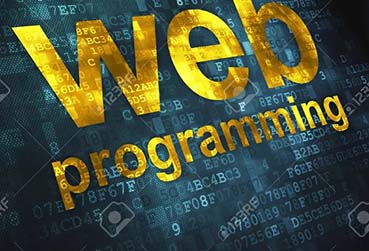 T-Junction, Bamenda NWR-Cameroon
T-Junction, Bamenda NWR-Cameroon info@lauratebusinesscollege.com
info@lauratebusinesscollege.com
Opening Hours : Monday to Friday - 8 Am to 5 Pm
Saturday : 8 Am to 1 Pm
Opening Hours : Monday to Friday - 8 Am to 5 Pm
Saturday : 8 Am to 1 Pm

Web programming refers to the development of web applications and websites that are accessed over the Internet. Web programming involves creating web pages, web applications, and other online content that can be displayed in a web browser.
Web programming is accomplished using a variety of programming languages, including HTML, CSS, JavaScript, PHP, Python, Ruby, and Java. Each of these languages has its strengths and weaknesses, and the choice of language depends on the needs of the project.
Minimum requirement
What you will learn in this course and more.
all websites use HTML — even this one. It’s a fundamental part of every web developer’s toolkit. HTML provides the content that gives web pages structure, by using elements and tags, you can add text, images, videos, forms, and more. Learning HTML basics is an important first step in your web development journey and an essential skill for front- and back-end developers.
You’ll find learning CSS essential in styling websites. Web developers use it to build on basic HTML and add personality to plain text pages. This course helps you expand your coding foundation and gives you CSS interactive practice to start adding colors and background images or editing layouts so you can create your very own, unique stylized web pages.
The JavaScript programming language is fun and flexible. It’s one of the core technologies of web development and can be used on both the front-end and the back-end.
PHP is a programming language used in modern web development, and build a strong foundation in PHP by learning about basic syntax. Learn how PHP is used in modern web development to create dynamic web applications. You’ll build a strong foundation in PHP, upon which you can build an understanding of more complex programming concepts.
Information is all around us. You can put it to use by learning SQL basics. Used in data science, analytics, and engineering, SQL makes it easy to work with data and make more informed strategy, operations, and business decisions. It’s a helpful skill for anyone who works with data (even in non-tech roles). In this SQL course, you’ll learn how to manage large datasets and analyze real data.
Students must have basic knowledge in the following areas before they can be enrolled in this program. Students who don't have knowledge in these areas will have to pay the prerequisite fee so that they can use one month and be orientated
Knowledge in the following areas will be an added advantage:
Front-end developer, back-end developer, full-stack developer, web application developer, web master, web designer, web security expert, SEO, Digital Marketer and more.




